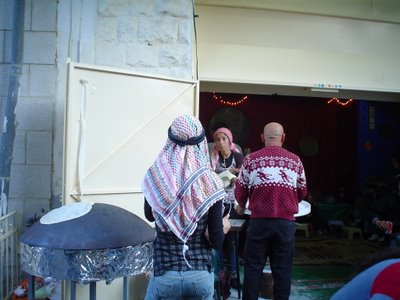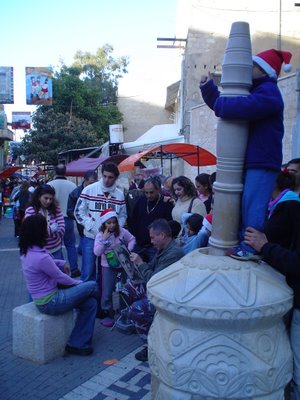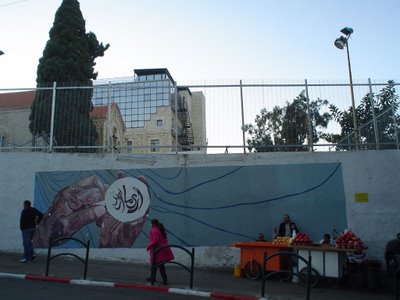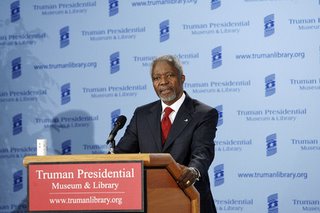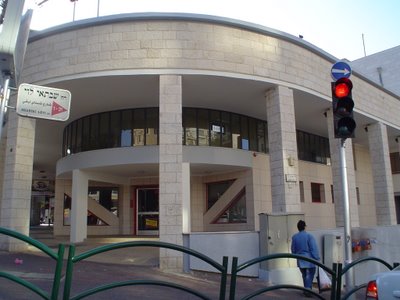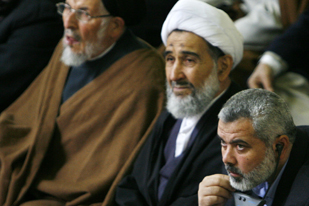It's almost amusing to witness the proliferation of competing memories of Saddam Hussein's hanging yesterday. As ever, it is not easy separating history from its narration. Zeyad's transcript of a cell phone video of the execution and its apparent divergence - however slight - from the reports of the New York Times illustrate how difficult it will be to unpack the event as it really happened from the rumors, myths, stories (or histories?) told by all those who have a stake in the affair - which is to say, most of us.
Every utterance by Saddam, the executioners, officials, and witnesses is likely to prove significant for the shaping of competitive memories of the event. Predictably, those memories break down along sectarian lines. The fact that the hanging took place on the holiday of 'Eid ul-Adha, which commemorates Abraham's willingness to sacrifice his son (Muslims believe that Abraham/Ibrahim wanted to sacrifice Ishmael; Jews and Christians believe that the designated sacrifice was Isaac), only added additional religious powder to the explosive mix of history and memory. Is Saddam the ram sacrificed in lieu of the nation (however defined) or is he the willing martyr, Ishmael himself, martyred for his people? Is his execution a holiday gift or insult added to injury?
Many Sunnis the world over, with the exception of Kuwaitis, denounced the killing. The Palestinians have long seen Saddam as their patron; more significant were the voices coming out of Saudi Arabia. In a statement read on the country's official news agency, the Saudi government said that "Leaders of Islamic countries should show respect for this blessed occasion ... not demean it," (Ha'aretz).
Sunni condemnations took aim at the Shi'a as well as the Americans. Doubtlessly, their collective memory of this event will prove increasingly important as the Saudis and other Sunni regimes in the region step up their support of Iraqi Sunni against Iraqi Shi'a and the Iranians. So far, many of these voices are still talking in nationalist terms. They take aim, for example, at the divisive nature of the event of the execution - divisive of the Iraqi nation. They are of course right. As all the reports and transcripts of the hanging make clear, the men who lynched Saddam were Shi'a, supporters of Moqtada al-Sadr no less. Saddam's ignominious end was the revenge of the Shi'a, and that is exactly how they staged it. But the Shi'a believe that they are the Iraqi nation. That is why the Kurds were not really represented at the execution, and that is why the hanging of Saddam took place before the dictator's trial for his atrocities against the Kurds was completed. The Iranians, in the meantime, emphasized that the execution was "a victory of the Iraqi people." They also chastised America for seeking the credit for Saddam's fall - funny, considering U.S. troops aided by Kurdish intelligence actually caught Saddam.
In fact, with their nationalist rhetoric the Saudis and the Iranians are merely paying lip-service to Iraqi unity. Everyone knows that under Saddam an Iraqi nationalism cutting across sectarian lines amounted to an illusion supported by brutal violence - a fiction from which Sunni benefited at the expense of Shi'a and Kurds. Today, Iraqi unity means Shi'a running things and letting the Kurds handle their own business in the north. By chastising the Iraqi Shi'i leaders for "demean[ing]" 'Eid ul-adha, the Saudis and others in the region are presenting themselves as leaders in a religious struggle on behalf of Sunni against Shi'a in Gulf and possibly beyond it.
Ironically, while the Iranians warned the U.S. not to take credit for the execution, much of the world pinned the blame for the hanging on the Americans alone. Indeed, a Korean friend of mine said that in most of his country's media, the rush to hang Saddam was presented as the result of a cynical ploy by Bush for higher domestic approval. I think this reaction is fairly representative for the intelligentsias of countries such as India, China, as well as for much of the European public. The Chinese foreign ministry, however, no doubt anxious to maintain positive relations with both the Iraqi government and the Iranians, stated that "Iraqi affairs should be decided by the Iraqi people," (Xinhua News).
ADDENDUM: Big Pharaoh has a nice sectarian breakdown on who executed Saddam ("the question really depends on who you are"). This is his answer for "All other Arabs and Muslims:":
The Americans executed Saddam and they've done so during the first day of the Muslim feast to humiliate us and show our leaders what awaits them if they stood against the US.








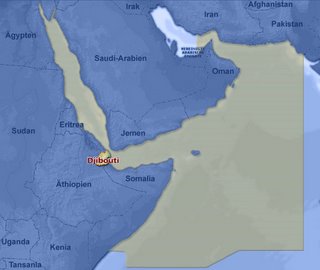








 The festival includes live performances (such as the band on the roof in the picture above), free entrance to the museums and galleries in the area, craft and antique fairs, and what would it be without food?
The festival includes live performances (such as the band on the roof in the picture above), free entrance to the museums and galleries in the area, craft and antique fairs, and what would it be without food? 

